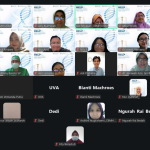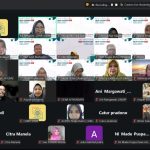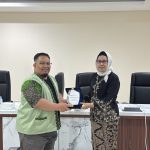
Wednesday (22/02) Center for Bioethics and Medical Humanities (CBMH FK-KMK UGM) just held Raboan Discussion Forum. The weekly online forum invited Gita Nasution, Ph.D from Australia National University. She presented her research titled Gendered Care and Ethics in Social Research. The discussion was lead by Erlin Erlina, Ph.D from FK-KMK UGM.
Gita presented her ethnographic study that explores the emergence and dynamics of the baby sitter profession in Indonesia, with a focus on the social and economic factors driving its growth and the aspirations of both employers and workers. The study highlights the gendered nature of care work, with women primarily taking on the role of careers in both domestic and public settings.
The study finds that the rise of the service sector in Indonesia has created a need for child care, which is particularly acute in middle-class families where both parents work. Hiring a child carer/nanny is seen as crucial to support dual income families in looking after their children. Meanwhile, from the worker’s perspective, becoming a baby sitter is often a result of limited employment opportunities and the need to provide for their families.
The study also reveals the dual role of agencies in the baby sitter profession: as a supplier of workers and as a training institution. However, there are challenges in the industry, including mismatched expectations, unskilled workers versus demanding employers, and persisting issues of discrimination and class hierarchy.
Overall, the study shows that the baby sitter profession is a social phenomenon that reflects the transformation of domestic work and sheds light on how people adapt to changing social and economic circumstances. While care work has become more professionalized, there remains a power dynamic between employers and employees, and care work remains a gendered profession.
Watch full video here






